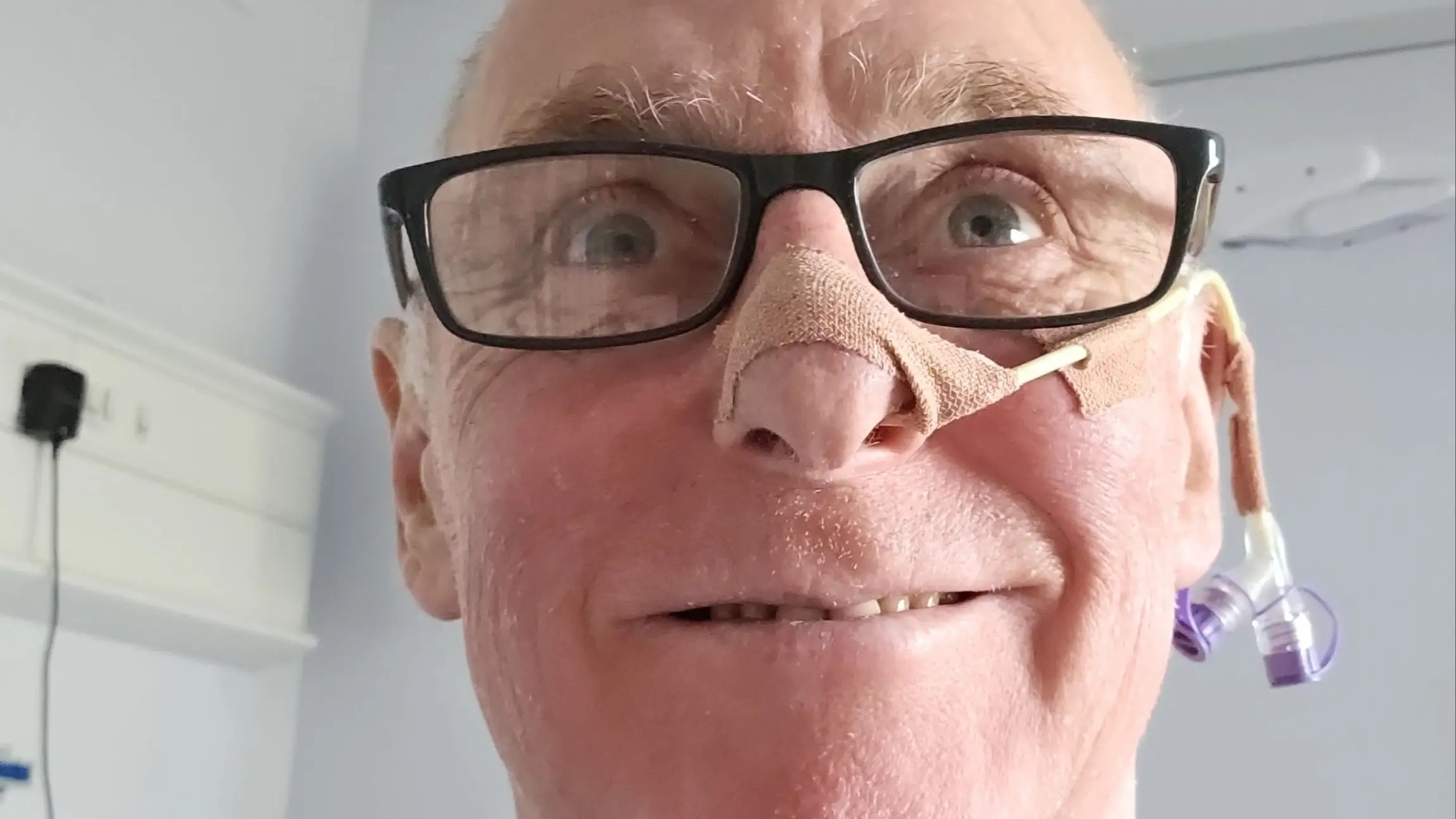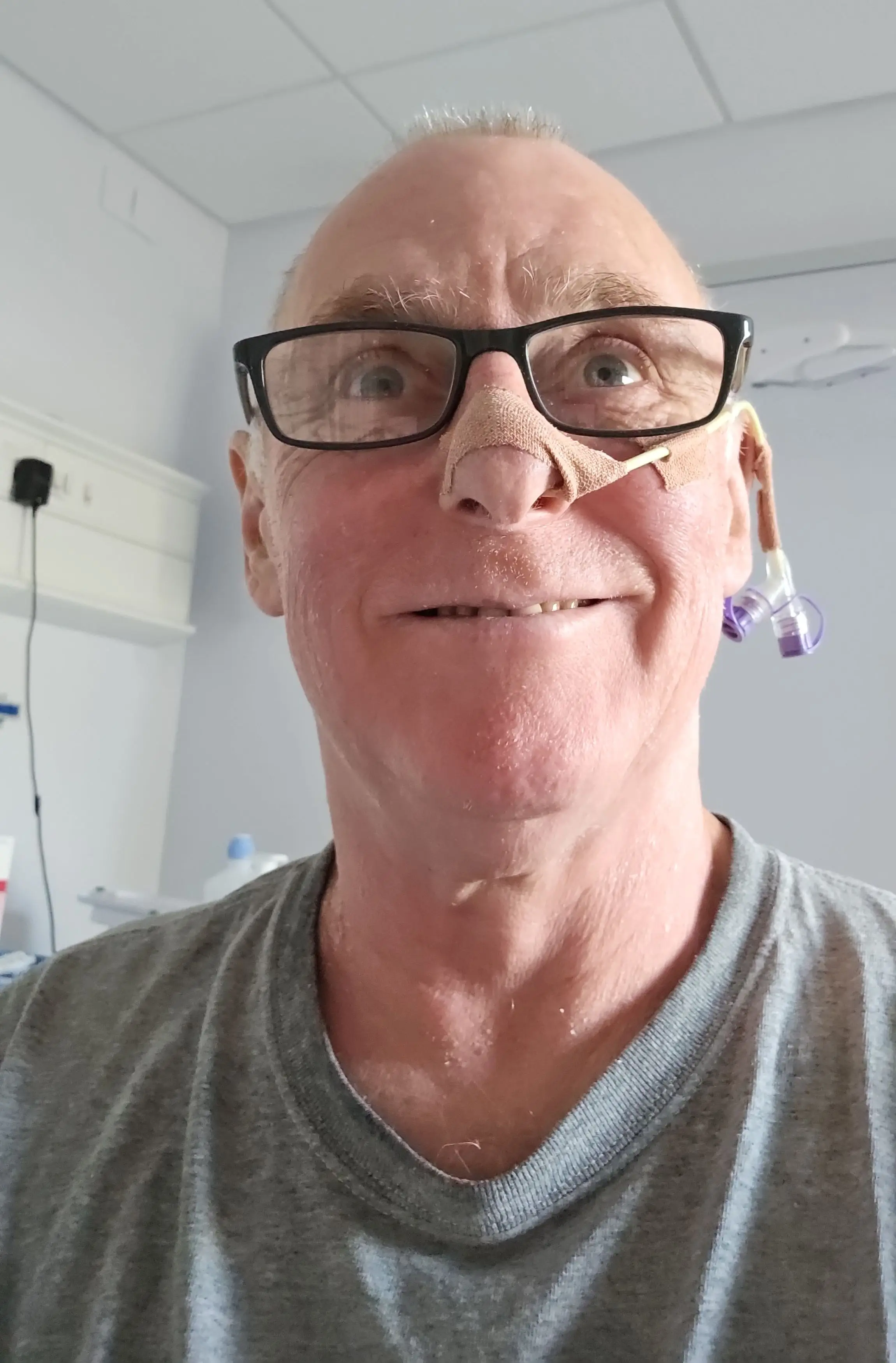
The main symptoms of throat cancer have been explained following a father's diagnosis of the disease as a result of... oral sex.
Frank Lane thought that it was a 'load of rubbish' when doctors told him what had happened, but it turns out that some promiscuous years when he was younger may have caught up to him.
It's not the first time a link was made between oral sex acts and cancer, though the HGV driver had no idea about his condition before finding a lump in his neck while shaving two years ago.
One fortnight later, though, the lump persisted, and Frank booked an appointment with his GP to check if it could be the sign of a more serious health issue.
Advert
After first attributing his workouts to the feeling of being run down, it turned out that it was cancer, as his doctor found a mass which stuck out of the top of his tonsils.

What happened to Frank Lane?
It turned out that the father-of-two had contracted human papillomavirus (HPV), which caused the throat cancer, according to an autopsy.
HPV is a group of viruses which impact the skin and membranes that line the body.
It can be spread during oral sex and full sex, and it can cause changes to the cells of the cervix, leading to cervical cancer.
The caveat here, is that HPV does not show any symptoms, with most people not realising they have the condition at all.
"I was having fun, but I wasn't messing about with loads of different girls," he said of his 20s.
Explaining that he'd stopped smoking 10 years ago, he was initially in disbelief, adding: "[When he said] you've got throat cancer from oral sex...it was a surprise. When I got told, I was thinking 'f**k that, I'm never doing it again'."

Symptoms of throat cancer
According to the NHS, throat cancer, also known as laryngeal cancer, is a type of cancer which affects the larynx, also known as the voice box.
This can be found at the entrance of the windpipe, which is medically known as the trachea.
It helps you breathe and speak, though there are over 2,000 new cases of laryngeal cancer every year in the UK, with the condition most common in men over the age of 60.
Here are the main symptoms of the condition:
- Having a hoarse voice for over three weeks
- A change in your voice
- A lump or swelling in the neck
- A persistent sore throat or earache
- Long-lasting cough or breathlessness
- Pain or difficulty when swallowing
- A high-pitched wheezing noise when you breathe
- A long-lasting cough or breathlessness
- Difficulty breathing
Less commonly, people may experience fatigue, bad breath, or unintentional weight loss.

Treatment for throat cancer
The main treatments for the condition are chemotherapy, radiotherapy, surgery, and certain cancer medicines.
If diagnosed early, radiotherapy or surgery can remove the cancerous cells from the larynx.
But if the cancer is advanced, surgery, radiotherapy, and chemotherapy may be used to remove part or all of the larynx.
This could mean that you'll never be able to speak or breathe normally, with there being a permanent hole in your neck, called a stoma, meaning you'll need more treatment along with speech and language therapy to communicate with others.
You may need to use an electrical device that's held against your throat to produce sound, or place a valve in your throat, to help with this.